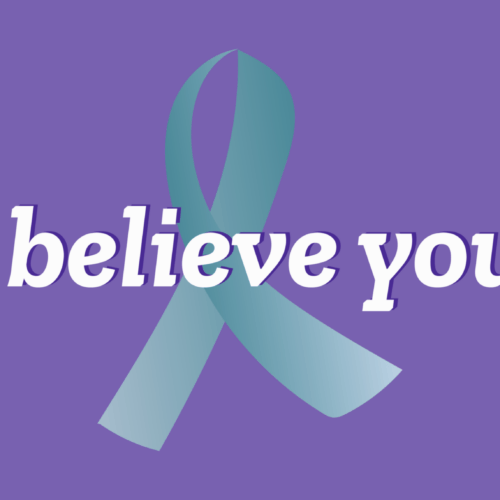April is Sexual Assault Awareness Month, and while many students across the country are away from campus due to COVID-19, there are still many ways to take action and show support for survivors in your communities during this time. This is especially important amidst the COVID-19 outbreak, as many survivors may have had to return to an unhealthy environment at home, or may feel disconnected from the community they may have built on campus.
Here are some ways you, as students, can show support for survivors from wherever you are:
› Support anti-violence organizations in your community and nationwide
Many communities across the country have a rape crisis center or similar organization that provides counseling, shelter, and pro bono legal assistance at little to no cost for survivors, which is very crucial in times like these when survivors may have had to return home to an unhealthy environment. If you’re able, you can donate to these organizations, as well as national ones like RAINN, to make sure that they’re able to continue to provide these resources. If your birthday falls during April, you can even start a fundraiser on Facebook so your friends can donate as well! There are other ways to support these organizations, such as donating old clothes and other supplies, but be sure to check the extent to which they’re operating at the moment.
› Organize virtual events with your fellow students
One great way to do this is by taking part in RAINN Day on April 14th with your peers, RAINN’s annual campaign dedicated to getting college students involved. Other ideas include: hold a virtual art display or poetry contest by and for survivors, or a letter-writing campaign. Encourage students to submit their work and post it to social media–just make sure you have clear guidelines for what’s appropriate to share and what isn’t. For example, avoid including identifying information or specific details about particular events that may be triggering.
› Join your school’s sexual violence advocacy group when you get back in the fall
You may be away from campus now, but many colleges have student organizations specifically geared towards sexual violence advocacy on campus, with the needs of each specific campus in mind. I’ve been active in my college’s group for the past three years, and it has been a life-changing experience. We hold general body meetings where we discuss topics related to sexual violence, host peer education workshops for student organizations and Greek chapters, advocate for better policies at the university level, and help connect survivors to on-and-off-campus resources. This is a great way to bring students together on campus who share the passion of changing the culture around sexual violence, so use this time at home to brainstorm what that might look like for you and your peers.
› Let your peers know that you’re there for them
When someone discloses trauma to you, your reaction matters so much, and can often be a factor in whether they seek further help. Keep V-A-R in mind when responding to someone who shares their experience with you. “I believe you,” “I support you,” “You are not alone,” and “What happened to you was not your fault” are some simple yet powerful phrases for that, as is “Thank you for sharing that with me” to appreciate that this is often very hard for survivors to do. It may be especially hard for survivors who have had to return to an environment where it is tougher to ask for help, so there are some extra things to consider with that.
While you may not be able to do everything to help, you can refer them to professional resources such as RAINN and/or your school’s Title IX office or counseling center. Organizations such as End Rape on Campus, Know Your IX, and It’s On Us have more student-specific resources as well and they have done a lot of webinars so far this month. And if a survivor discloses to you, don’t forget to take care of yourself as well; these are difficult topics and it’s valid to have a hard reaction.
› Change the way you look at these issues in your everyday life
SAAM may only last the month of April, but the conversation shouldn’t end come May. We all have a role to play in this, and there are things we can do in our everyday lives to make these changes, starting with how we talk about it. If you hear someone joke about sexual violence, or mention one of many harmful misconceptions known as “rape myths,” call it out and explain why these statements are harmful. If you see one of your friends in a potentially dangerous situation at a party, help them out by being an active bystander. And most of all, talk about these issues as if there are survivors who are currently listening, because chances are, they are listening, whether you realize it or not.
So while we may be apart from each other physically, we can still do our part in coming together to educate ourselves and change the culture surrounding sexual violence. We all probably know someone who’s been affected by sexual violence, and by doing things like these, we’re making a positive impact on their lives and on the culture at large.







